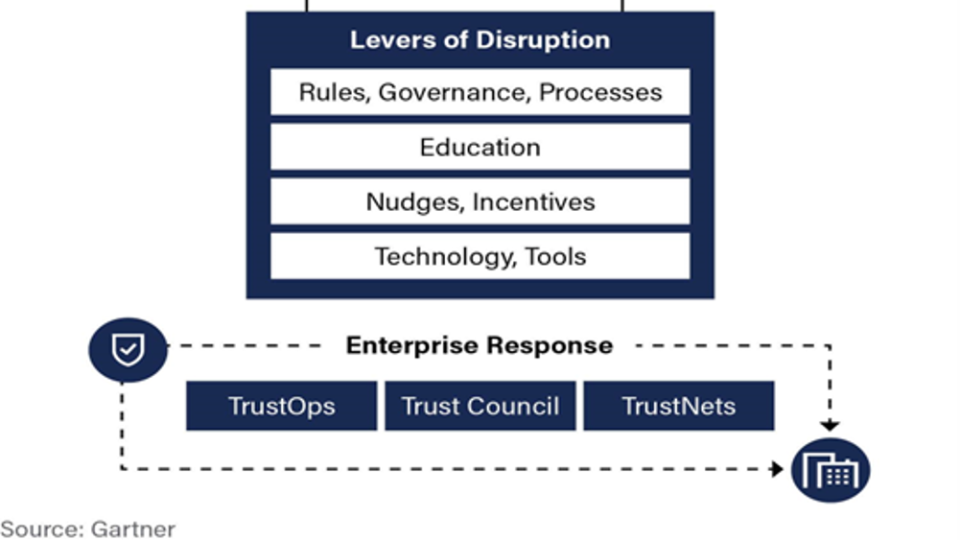
Just as the 1848 California Gold Rush drew hopeful prospectors westward in a frenzied quest for riches, the advent of Generative AI, or GenAI, is sparking a modern-day digital ‘gold rush’, according to GFI Software CEO Eric Vaughan (pictured left).
The sudden uproar around OpenAI’s ChatGPT has drawn tech giants like Microsoft, Google and Amazon into a race for AI dominance – and while it's yet to reach its full potential – Vaughan urges MSPs to also stake their claim in this growing field.
"We're all in a quest for gold, and while we'll undoubtedly find some fool's gold along the way, there are genuine gold nuggets to be discovered with this technology,” he says. “In my three decades in the industry, I've never encountered anything as groundbreaking as GenAI. Its potential should excite every MSP."
Vaughan’s enthusiasm is related to a rapidly evolving market that is projected to generate nearly $159 billion in expected sales revenue, a sum research firm Canalys predicts will significantly impact the channel ecosystem by 2028.
Advantages of GenAI
The crux of why it is so revolutionary for MSPs, according to Vaughan, is its potential to drive efficiency, spur innovation, and deliver personalised customer experiences, setting the stage for unprecedented growth.
“It will enable MSPs to scale their businesses,” he says. “Without increasing their team size, they can now leverage AI technology to improve efficiency and automate processes each time they acquire new customers.
"This isn't just basic automation; it's intelligent automation that continuously adapts and learns. It will transform the landscape for MSPs, revolutionise software development, and alter the way people engage with the world.”
Greg Jones (pictured middle), Vice President of Business Development for Kaseya in EMEA, agreed that the technology will significantly transform the channel, creating more opportunities for MSPs.
He believes that the technology will not only boost productivity and revenue but also improve back-office functions.
“This isn't a fleeting trend or a temporary distraction that will fade in six months; it's here to stay,” he says. “I would concentrate on deploying it in the back office, specifically targeting tasks that aim to eliminate manual tasks from the service desk.”
The back office encompasses a range of business functions, such as human resources, finance and accounting, supply chain management, logistics, and IT support.
“These tasks can be efficiently handled through processes that are well-suited for AI,” Jones adds. “It liberates the support desk to concentrate on aspects like skill development, education, and more engaging tasks. It might even provide an opportunity to explore other areas of the business.”
Though incorporating GenAI may necessitate an upfront commitment of time and financial resources to remove mundane tasks, the goal is to not “reduce your workforce or remove the human element but to rather use the technology to boost profitability and operational efficiency,” he reiterates.
Using AI responsibly is crucial
However, it's vital for MSPs to implement the technology in a responsible and effective way, Jones notes. "It excels in certain areas, but caution is required when deciding where and how to implement it.”
With cybercrime growing exponentially, there are security risks with using the technology, according to Dave Stevinson (pictured right), CEO of QBS Software.
“It is a great piece of tech but there are a lot of risks that come with it too; moving quicker and moving faster in the wrong direction, can also cause problems,” he says.
When implementing AI, trust is a crucial element to consider, Stevenson asserts. In a recent IDC survey sponsored by Teradata, 80% of 900 global executives said they trust GenAI for future endeavours. However, 86% see a need for better governance, and 66% are concerned about GenAI's potential biases and misinformation.
Another separate analysis by independent ratings agency NewsGuard discovered that ChatGPT-4, which runs on the GPT-4 architecture, is not only more prone to producing misinformation but also more persuasive in its dissemination compared to its earlier version, ChatGPT-3.5.
“If you're basing decisions on the wrong information, or if you're pulling in data, which is highly secure and sharing it in the public domain, blindly trusting the technology can also cause issues,” Stevenson says.
To proactively manage these risks, he asserts, MSPs will need to build their own skills and competencies related to GenAI.
“They'll need to learn the value of what generative AI can bring. Every business that has AI commands a higher multiple in the stock market now, gets more value from private equity and piques everyone's interest.
“Therefore, the smart MSPs must separate the ‘wheat’ from the ‘chaff’ to identify what is truly transformational.”







